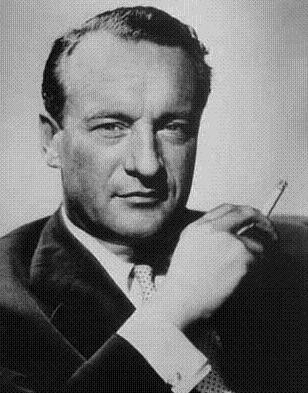As overly serious police procedurals have begun to saturate the primetime network TV schedules, the FOX network has quietly but wisely been exploring alternatives. Introduced a few years ago, the highly popular House varied the formula by moving it to a medical setting, and last year Fringe interestingly revived the delight in adventure characteristic of mid-1960s network TV dramas.
The new drama Glee (Wednesdays, 9 p.m EDT) represents another approach and a bolder break with current trends–and it may point the way toward a welcome increase in variety among network TV dramas.
Produced by Ryan Murphy (Nip/Tuck), Glee tells the story of high school teacher Will Schuester (Matthew Morrison) a married high school teacher in his thirties, who wants to restore McKinley High School’s glee club to its former glory, achieved when he was a member during his high school years and the club won the nationals.
Unfortunately, glee is now way out of style and is just about the lowest rung on the school’s status ladder. But Will is not one to be easily stopped, even by the school’s powerful cheerleading coach, Sue Sylvester (Jane Lynch), who hates the glee club and wants it stopped.
The presentation of high school status issues and depictions of how peer pressure paradoxically enforces conformity to an odd mix of rebellious attitudes is both insightful about high school and American society in general, where the media and much of the culture tend to function like the higher-status kids in high school, enforcing a foolish, unfocused sense of rebellion and entitlement.
Schuester, on the other hand, exemplifies what makes a good teacher: he takes great joy in developing young people’s talents–and the singing of the glee club is so entertaining that it induces the audience to share that feeling.
“We’re all here for the same reason: because we want to be good at something,” says Finn Hudson, a glee club member and star quarterback who is forced to stand up to his coach and teammates in order to take part in the club, because of its unacceptably low status in the school’s social hierarchy.
That scene, from the pilot episode, exemplifies the kind of drama and meaning the producers are able to find in this seemingly inhospitable subject.
If comparisons to Disney’s High School Musical movies are inevitable, Glee can stand the heat. Its greater realism and recognition of the economic and social limitations of small-town life move Glee significantly beyond a mere show-biz story.
In fact, the show of which Glee is most reminiscent is Friday Night Lights, the brilliant DirecTV/NBC drama series centered on a Texas small-town high school football team. Each show looks sympathetically but realistically at a social organization in an American high school and extracts drama and real social insights. Glee includes a good deal more humor than Friday Night Lights, and is less inclined toward the tragic view evident in that show, but the result is the same: a show that’s both enjoyable and edifying.
Glee could be misconstrued as making some political points or working toward progressive notions of social transformation, but so far that hasn’t been its emphasis. It’s true, for example, that the season premiere, “Showmance,” mocks teenage celibacy programs and caters to the myth that public schools teachers are underpaid. It also includes an exceedingly vulgar song-and-dance sequence.
Similarly, traditionalists might be tempted to take offense at the presence of so many references to homosexuality in the show, which could be taken as advocacy of it. One of the glee club members, Rachel, has “two daddies,” as the saying goes, and another, Kurt, reveals that he’s a homosexual, in episode two, “Acafellas.” Yet that is simply a function of the show’s realism: one could very well expect those particular kids to be among the few who would gravitate toward the high school glee club, given the low status of the group. Those of already low status have less to lose.
In addition, all of the episodes shown so far have mocked political correctness shibboleths and satirized moral failings such as disloyalty, selfishness, and dishonesty. Although Glee displays a certain amount of surface sympathy with contemporary moral relativism, it’s really showing sympathy with the individuals, not their failings, and the first three episodes of the show suggest that it’s on the right side regarding general moral principles.
Fox is taking a chance by going against contemporary TV drama conventions, but the rewards could be worth it–for network and audience alike.

COMMENTS
Please let us know if you're having issues with commenting.